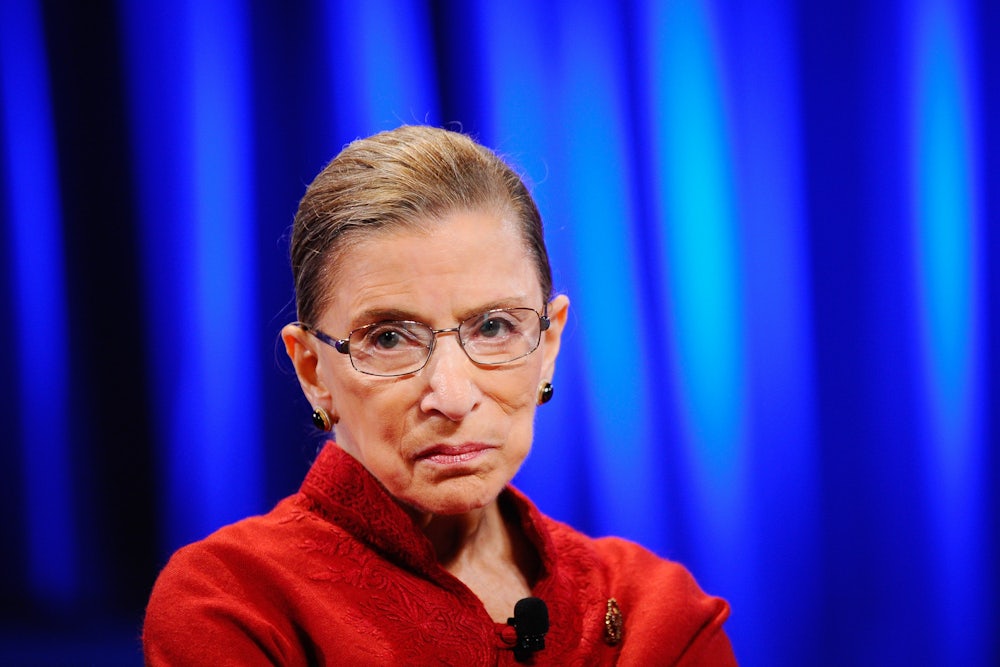Ginsburg had been under fire for much of the week for telling a New York Times reporter, “I can’t imagine what this place would be—I can’t imagine what the country would be—with Donald Trump as our president. For the country, it could be four years. For the court, it could be—I don’t even want to contemplate that.” Trump, sensitive to all criticism, but especially sensitive to criticism lobbed at him by women, responded by suggesting that Ginsburg was senile and should resign from the court immediately.
Justice Ginsburg of the U.S. Supreme Court has embarrassed all by making very dumb political statements about me. Her mind is shot - resign!
— Donald J. Trump (@realDonaldTrump) July 13, 2016
But Trump wasn’t alone in criticizing Ginsburg. Because the court is expected to be apolitical, or at least to exist apart from the base political realm—an impossible expectation, but an expectation nevertheless—her remarks were widely condemned. The New York Times editorial board took Trump’s side, sort of, and argued that Ginsburg was endangering both democratic norms and her ability to weigh in on a potential Trump v. Clinton decision.
On Thursday, Ginsburg backed down and apologized for criticizing Trump publicly. “On reflection, my recent remarks in response to press inquiries were ill-advised and I regret making them,” she said. “Judges should avoid commenting on a candidate for public office. In the future I will be more circumspect.”
